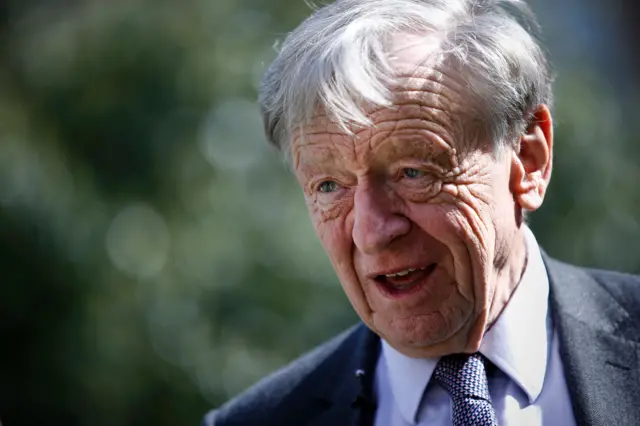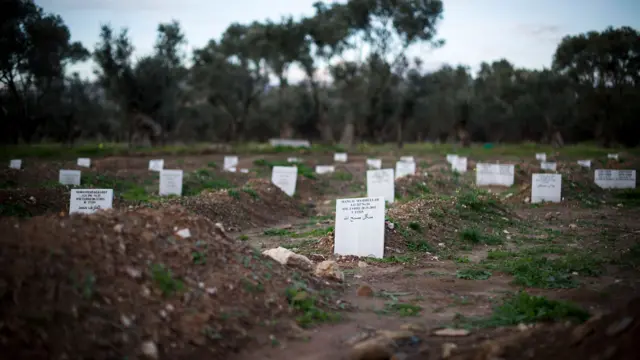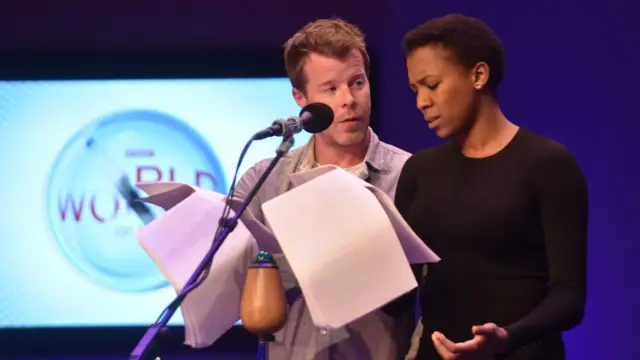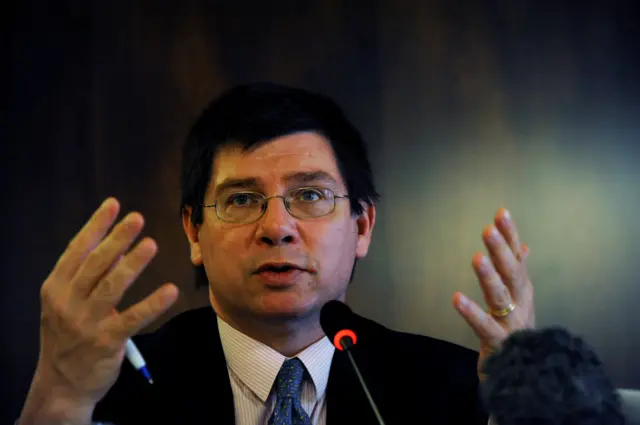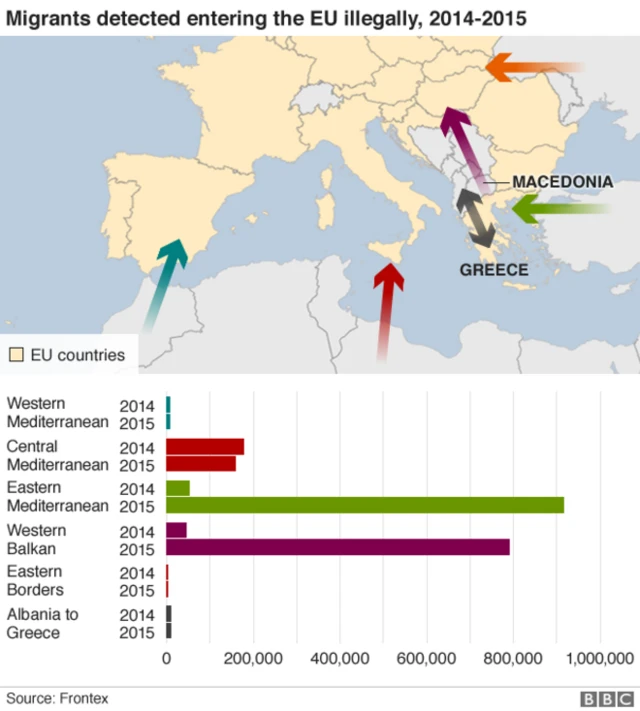'Are we more or less compassionate than before?'published at 15:37 (14:37 GMT)
Stephen Sackur asks Lord Dubs: "Do you see a change amongst us humans? Do you think we are more compassionate or less compassionate today than we were in 1939?"
"I'd like to think we're more compassionate," Lord Dubs says, because we see more about crises on our television screens. "Equally, we seem to have more concerns about migration."
However, Lord Dubs says he believes the British are still very compassionate.
